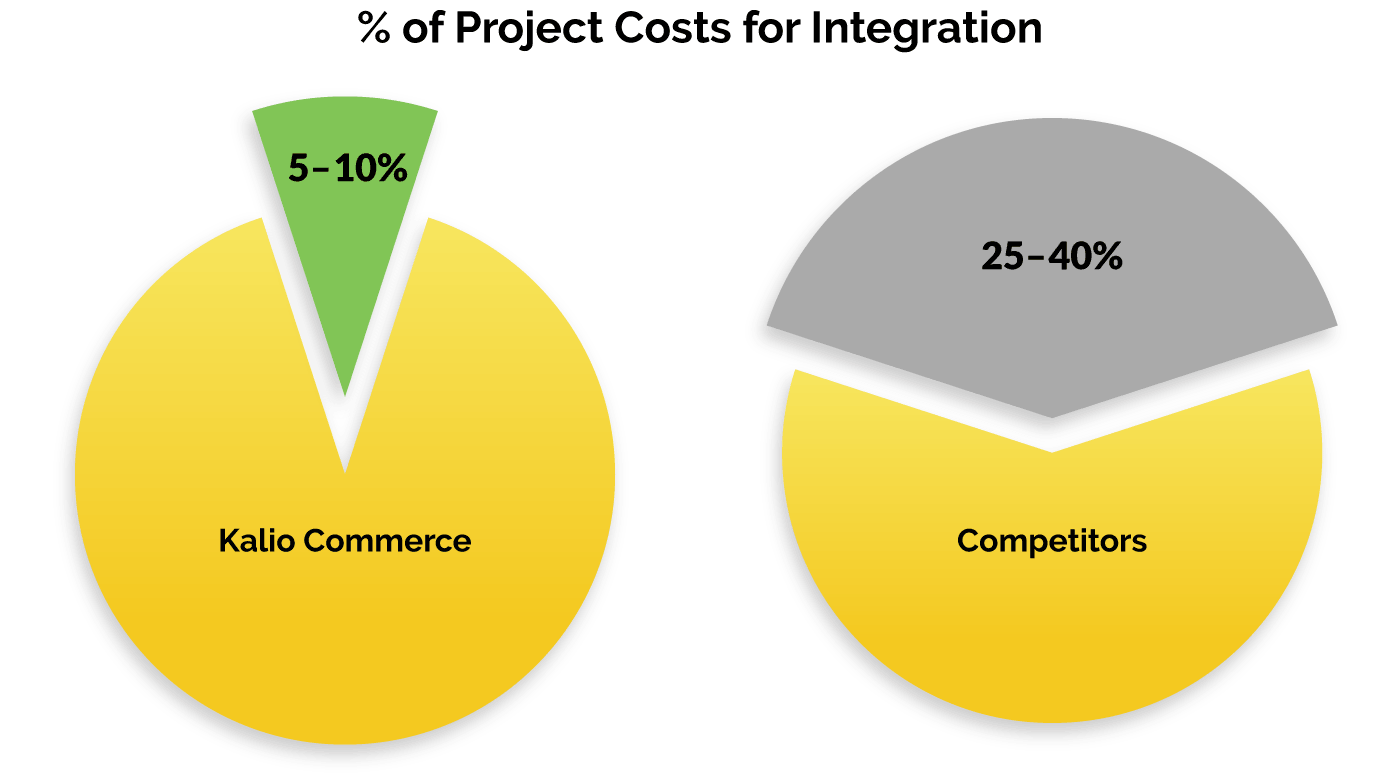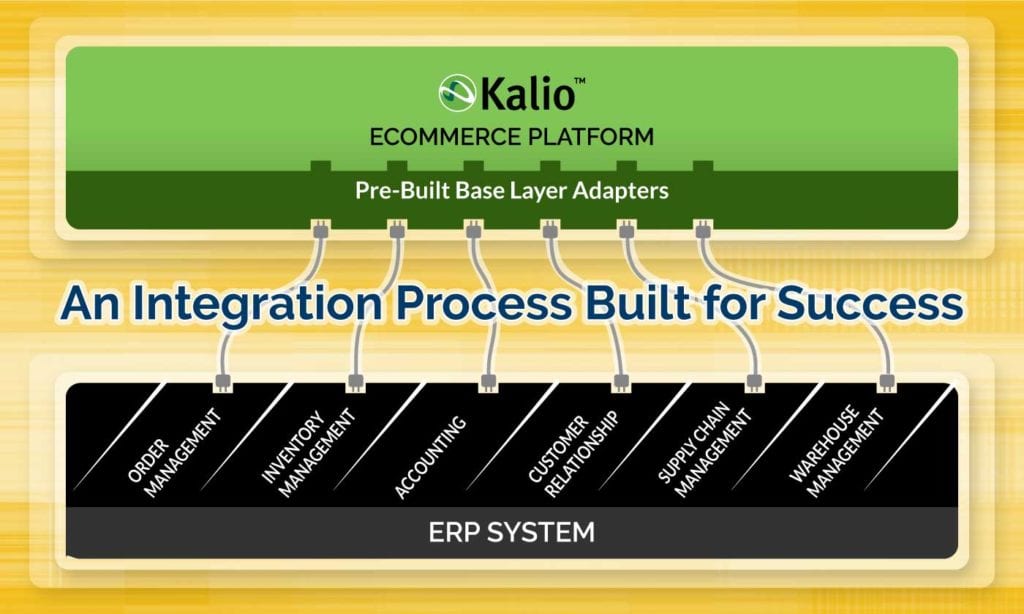The Marriage Between Your Ecommerce and ERP Systems
One of the keys to the successful implementation of any ecommerce platform is the integration with a company’s Enterprise Resource Planning (ERP) or Order Management System (OMS). The success of this integration can mean the difference between a best-in-class ecommerce experience or one that’s plagued by workarounds and functional shortcomings. At Kalio, we recognize this key fact and it’s why we place such an emphasis on back-end integrations with each of our customers.
ERP systems are essential for mid-market businesses. They provide a range of business functionality from order management and inventory planning, to accounting, customer relationship, and supply chain management capabilities. Often, these systems serve as the book of record for a company’s data and business rules. And, in many cases, these systems can be decades old with numerous customization layers built on top of the original codebase making them extremely difficult to modify and integrate with. Usually interconnected to many different aspects of a business, having to replace your ERP as a requirement for upgrading your ecommerce platform is simply not an option for most businesses.
We agree. We don’t think that’s an acceptable option and we make sure that you don’t have to.
Over the years, we have learned that the ideal integration between your ecommerce and ERP systems is one that allows each to focus on what it does best. You need to find the proper balance between the two systems. There are certain data elements that should be owned by the ERP, while others should be owned by the ecommerce platform. Playing the role of Systems Architect, Kalio works with your internal team to design a solution that maximizes the abilities of each system. Done correctly, the end result is an ERP system that is optimally integrated with your ecommerce platform allowing each system to perform their unique functions independently and to the best of their abilities.
Kalio Commerce Adapts to Your Systems
The Kalio Commerce platform features a modular design that can be modified as needed to best integrate with your ERP system. With predefined integration points, such as order history, customer lookup, inventory lookup, and sending orders, Kalio has developed a battle-tested approach that allows for easier and better integrations implemented quickly and modified easily.
As part of this approach, we’ve developed a series of pre-built base layer integration adapters that helps expedite the integration process. Kalio already has these in place for numerous ERP/OMS systems, in addition to a pre-built adapter that can be configured for generic, or home-grown, systems. Despite the fact that back-end systems will differ, we can do this because there are certain key functions that must be performed in all cases. Subsequently, by pre-building our adapters for these similar processes (e.g.: send order, customer lookup, inventory, etc.) we’re able to quickly and efficiently integrate with any ERP system.
However, we realize that each ERP system is also unique, and even the best-planned one-size-fits-all implementation won’t fit your entire system. To meet this challenge, a high level of adaptability is essential. Kalio Commerce’s modular design allows us to override specific adapter functionality during implementation. Ultimately, our base adapters typically cover around 80% of an ERP integration without any customization. But the ability to override these pre-built sections of the adapters allows us to finish the remaining 20% of the integration with a high degree of precision and speed.
Simple but Powerful Communication Architecture
Another common difficulty ecommerce companies face when integrating their platform with their ERP is the communication protocol barrier. Between Web Services, SOAP, SQL, ODBC, and more, there’s plenty of room for information to get lost in translation, especially in ecommerce where so much data is transmitted. Our platform utilizes base adapters for the most common communication protocols, which are designed for easy leverage in the creation of new ERP integrations.
As a result, Kalio Commerce can integrate with virtually every mainstream ERP platform, including Sage X3, Microsoft Dynamics, and NetSuite, as well as older, AS/400-based systems. And utilizing our generic, pre-built base layer adapters, we can even integrate with proprietary ERP systems (typically found in many mid-market companies) quickly and efficiently. First-in-kind integrations don’t scare us. We do them quite often.
Where Cost-Effectiveness Meets Speed
Ultimately, successful integration with your ERP is an essential part of any effective mid-size ecommerce solution. Unfortunately, the time and cost of typical ERP integrations can often serve as a barrier for many companies looking to replatform. With Kalio Commerce, you get access to a platform designed specifically for rapid, easy implementation and integration. And when you sign up with Kalio, we handle every aspect of your ERP integration, so you don’t have to worry about playing mediator between various integration partners.
The numbers speak for themselves:
Platform Implementation Time:
• 4-7 months for Kalio Commerce
• 10-16 months for average competitors

Typical ERP Integration Cost:
• 5-10% of total project cost for Kalio Commerce
• 25-40% of total project cost for average competitors

With over 20 years of business process engineering experience, our solution architects know how to build successful integrations. Let us maximize your e-commerce business opportunities without having to reinvent the wheel – or your ERP systems.
